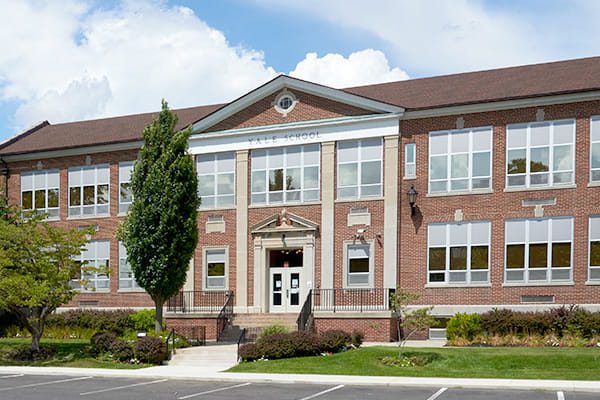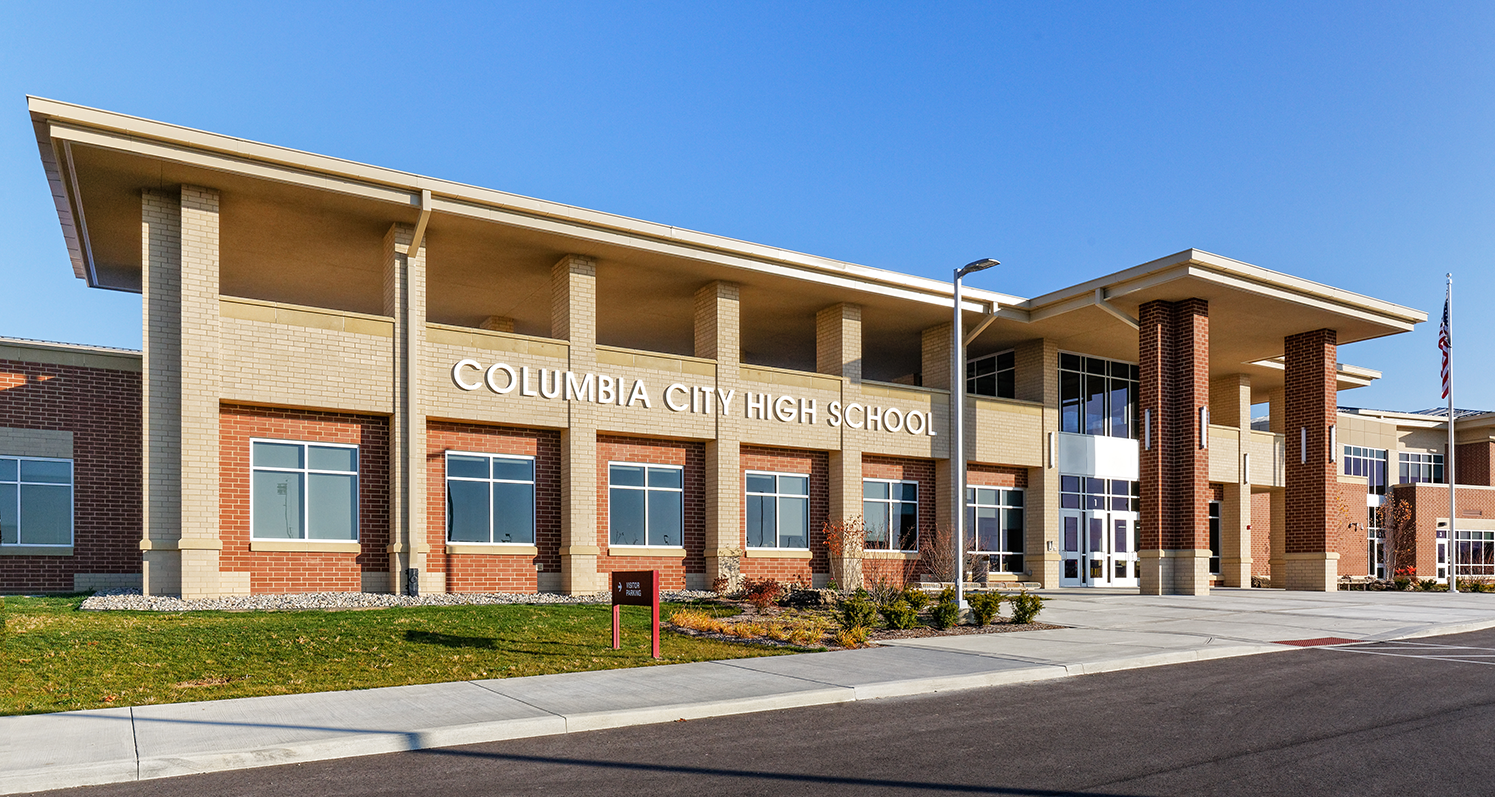Just How You Can Help Save Temecula Schools for Future Generations
Just How You Can Help Save Temecula Schools for Future Generations
Blog Article
How Schools Play a Crucial Duty in Shaping Future Leaders and Trendsetters
Institutions are instrumental fit future leaders and innovators with the cultivation of vital reasoning, imagination, and collaboration. By integrating project-based knowing and interdisciplinary researches, schools test students to analyze and synthesize complicated information. Educators act as advisors, directing students and nurturing their potential, while after-school activities additionally establish management abilities and strength. This vibrant environment not only concentrates on specific strengths however also highlights the value of team effort, important for navigating tomorrow's obstacles. Exactly how specifically do these aspects interplay to create a durable foundation for future success?
Promoting Crucial Thinking
In today's quickly advancing world, promoting critical assuming within universities has ended up being critical. As culture faces increasingly complicated global challenges, the capability to assess, evaluate, and synthesize information is important. Institutions play an important duty in establishing these skills, preparing pupils to browse and address diverse troubles with informed, reasoned decisions.
To grow critical thinking, educators employ various instructional strategies that encourage active understanding and intellectual involvement. Class discussions, problem-based knowing, and Socratic questioning are important in advertising reflective and logical mind. By challenging pupils to question presumptions and take into consideration numerous perspectives, these approaches make certain a much deeper understanding of topic beyond memorizing memorization.
In addition, incorporating vital assuming throughout the curriculum strengthens its significance and applicability in diverse contexts. Subjects such as maths, scientific research, history, and literary works each offer unique opportunities to develop trainees' crucial faculties. As an example, evaluating historic occasions needs understanding and evaluating resources context, while scientific inquiry demands rigorous theory testing and evidence-based reasoning.
Ultimately, instilling crucial believing skills in trainees equips them with the cognitive tools necessary for long-lasting understanding and flexibility. It is through this fundamental competence that future leaders will certainly be able to introduce, resolve troubles, and contribute meaningfully to society.
Motivating Creativity
Welcoming creative thinking within academic frameworks galvanizes students to believe beyond traditional borders and discover cutting-edge solutions. By integrating creative undertakings and creativity workouts into the educational program, institutions grow a setting where originality and creative thought are valued. This approach not just improves the educational experience but also gears up students with the capacity to tackle real-world difficulties in novel means.
Educational institutions can cultivate creative thinking via diverse ways such as project-based learning, interdisciplinary studies, and the consolidation of arts and technology. Project-based understanding, as an example, urges students to apply their knowledge in sensible, typically collective, tasks that demand innovative analytical abilities. Interdisciplinary studies enable students to attract links in between different topics, therefore expanding their perspectives and boosting their imaginative capabilities.
In addition, supplying pupils with possibilities to involve with arising modern technologies, such as coding and electronic design, further supports their imaginative potential. These tasks trigger pupils to experiment, fall short, and iterate, which are critical parts of the innovative procedure (Save Temecula Schools). By preserving an encouraging setting where trial and error is motivated, colleges can make sure that pupils establish the self-confidence to seek innovative concepts
Basically, supporting creativity in academic setups is vital for shaping future leaders and pioneers efficient in resolving complex international problems with resourcefulness.
Encouraging Partnership

Implementing group-based discovering components and cooperative projects permits trainees to experience the characteristics of synergy firsthand. This not just prepares them for the collaborative nature of contemporary offices but likewise nurtures management top qualities as they commonly need to tackle roles such as task supervisors or group planners. In addition, collaboration in the class can break down social barriers and promote inclusivity, ensuring that each pupil feels valued and heard.
Additionally, integrating modern technology can further support joint efforts. pop over here Devices like shared interactive platforms and digital work areas make it possible for pupils to function with each other successfully, also outside the classroom. As trainees develop these collaborative skills, they are better equipped to tackle complicated difficulties and introduce, laying the groundwork for their future duties as innovators and leaders.
Role of Educators as Coaches

Mentorship includes customized focus, where instructors identify and nurture individual strengths and address weak points. Save Temecula Schools. Through one-on-one interactions, educators can customize their recommendations and support to fulfill each pupil's special this article needs, cultivating a feeling of confidence and durability. This customized approach cultivates a development attitude, urging students to watch failings as possibilities for learning and development
Furthermore, educators offer as good example, showing the values of perseverance, integrity, and compassion. Their mindsets and actions supply a blueprint for trainees to replicate, instilling a feeling of ethical obligation and social understanding. By producing a helpful and comprehensive classroom environment, teachers enable students to create interpersonal skills that are crucial for effective leadership.
Essentially, the mentorship given by instructors lays a fundamental framework for the development of future leaders, furnishing them with the understanding, abilities, and worths needed to stand out in an ever-evolving world.
Impact of Extracurricular Tasks
When incorporated successfully right into the academic structure, extracurricular activities significantly boost trainee advancement and management potential. These tasks give students with possibilities to discover interests past the conventional educational program, cultivating a well-rounded ability collection.
Trainees engaged in songs, drama, or argument clubs discover to believe seriously and approach problems from diverse viewpoints. By teaming up with peers from various backgrounds, students likewise establish compassion and communication skills, important qualities webpage for future leaders.
Extracurricular tasks likewise play a crucial function in scholastic efficiency. Research study indicates that students associated with such programs tend to have greater grades and better presence records. These tasks offer a healthy outlet for tension, adding to overall well-being. Hence, institutions that prioritize a well balanced technique to education, incorporating robust extracurricular programs, are most likely to create leaders and innovators furnished to meet the challenges of the future.

Conclusion
In final thought, schools significantly shape future leaders and innovators by supporting vital reasoning, creative thinking, and partnership among trainees. By promoting a helpful environment that values individual strengths and synergy, institutions outfit students with the necessary abilities to navigate future challenges and drive innovation.
As trainees create these collective skills, they are better outfitted to tackle complex obstacles and innovate, laying the groundwork for their future roles as leaders and innovators.
By promoting crucial thinking and analytic skills, teachers help pupils browse intricate obstacles, preparing them for leadership roles in numerous fields.
By teaming up with peers from various histories, trainees also develop compassion and interaction abilities, necessary attributes for future leaders.
In final thought, schools dramatically form future leaders and trendsetters by nurturing vital reasoning, imagination, and collaboration amongst students. By cultivating a helpful setting that values specific toughness and teamwork, colleges equip pupils with the needed skills to navigate future challenges and drive innovation.
Report this page